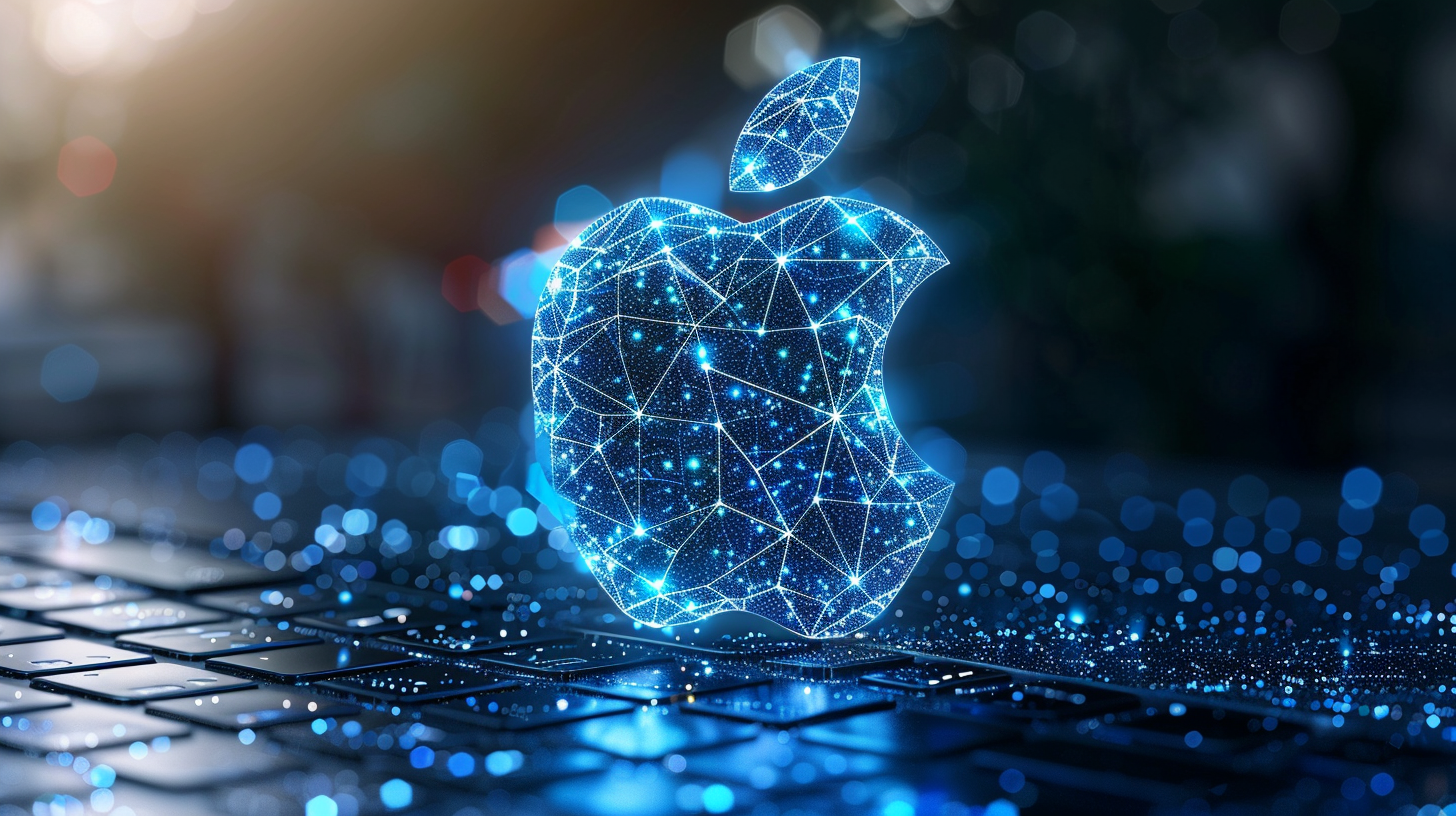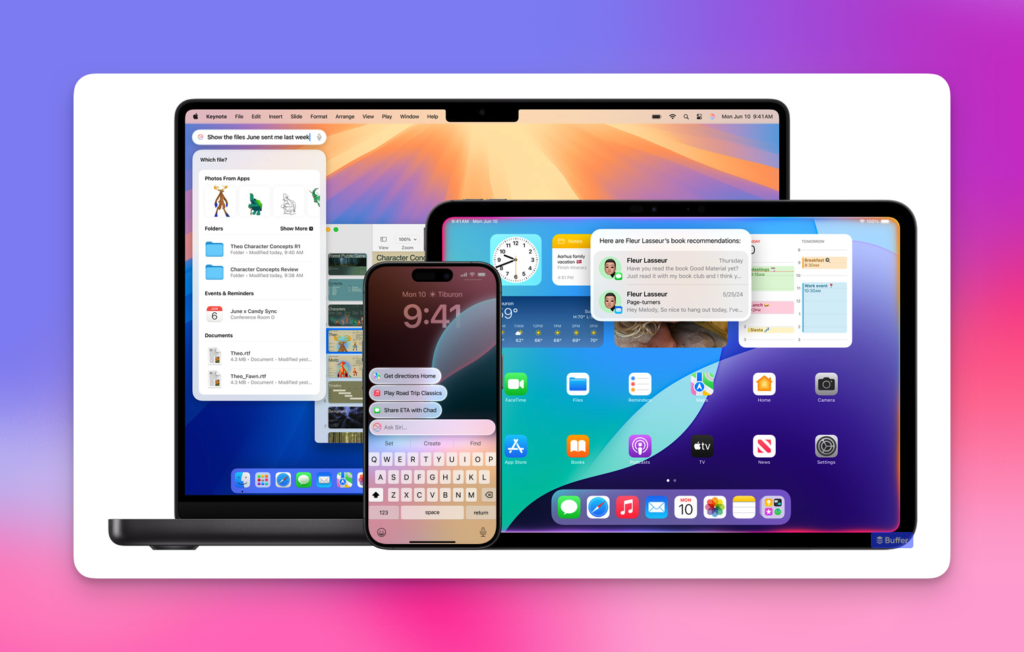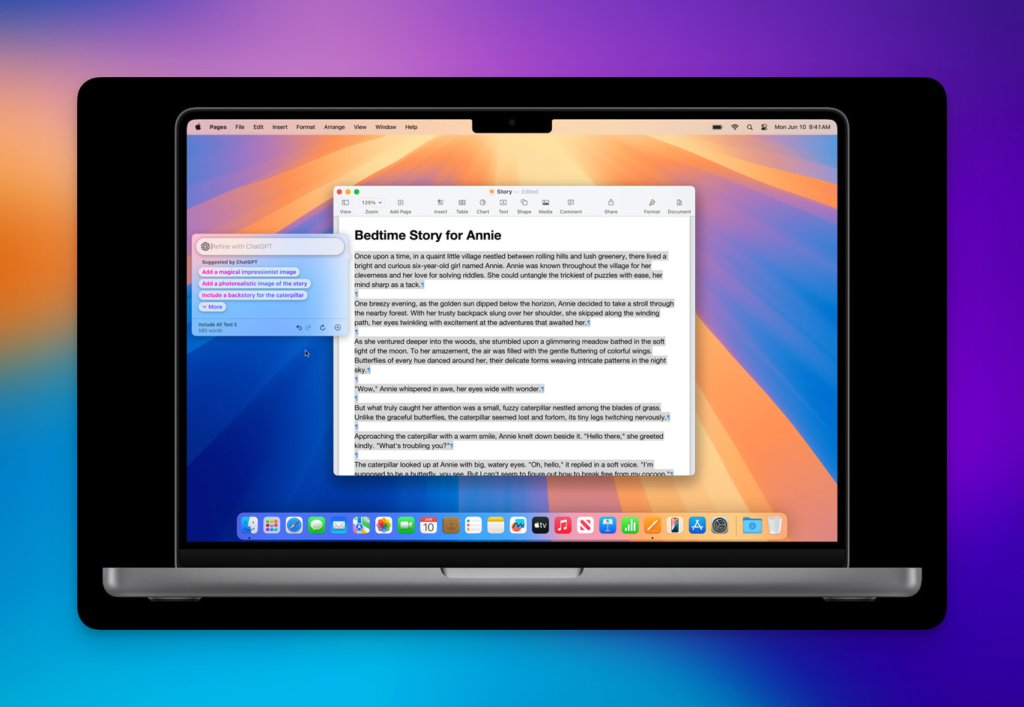
Apple recently launched Apple Intelligence, a major breakthrough in personal artificial intelligence. Presented at WWDC 2024, this technology is integrated into the iOS 18, iPadOS 18, and macOS Sequoia operating systems.
Apple Intelligence aims to offer more natural and contextual interactions with devices while guaranteeing maximum privacy.

Key Features of Apple Intelligence
Siri Reinvented
Apple Intelligence has transformed Siri, making it more intuitive and contextual than ever.
Thanks to improved natural language understanding and a redesigned interface, Siri can now track the context of several successive queries and offer more relevant, personalized responses.
Users can also interact with Siri by typing commands, offering additional flexibility in communicating with the voice assistant.
Photos and Videos
The Photos application benefits greatly from Apple Intelligence. Users can now search for photos and videos using natural descriptions.
In addition, a new cleaning tool makes it easy to remove unwanted objects in the background, improving photo quality without altering the main subject.
Writing tools
Apple Intelligence’s new writing tools, integrated into macOS Sequoia, enable users to rewrite, correct and summarize their texts with great efficiency.

These features are available in native applications such as Mail, Notes and Pages, as well as in third-party applications.
For example, the rewriting tool offers several versions of a text, adjusting the tone according to the target audience and the task in hand.
Notes and Transcription
Apple Intelligence also enhances note-taking with audio transcription and automatic summarization features.
Users can record discussions and let the AI generate detailed notes, or solve equations directly in the Notes app.
These tools make it easier to capture and organize essential information, making Notes more useful and accessible.
Privacy and Security
Processing on Device
Privacy is at the heart of Apple Intelligence. By processing data directly on the device, Apple minimizes the risk of personal data leakage.
In addition, Private Cloud Compute technology enables more complex requests to be handled securely,without the data being stored or accessed by Apple.
Integration with ChatGPT
Apple Intelligence integrates ChatGPT capabilities, allowing Siri to handle complex requests using OpenAI language models.
This integration offers users enhanced support without having to switch applications, and it’s all done while respecting Apple’s high privacy standards.
To find out more about Open Ai’s latest models, read our article: Chat GPT-4o: The AI that redefines Multimodal Interaction
Device compatibility
Apple Intelligence is compatible with all Macs and iPads equipped with M1 processors or later, as well as iPhones from A17 Pro.
This extended compatibility allows a wide range of users to enjoy the benefits of this new technology, provided they have the latest versions of Apple’s operating systems.
Data Privacy
Apple uses AI models that work locally on the device, minimizing the need to transfer personal data to external servers.
Private Cloud Compute technology, Apple ensures that data used for more complex queries is never stored or accessed by the company.
However, despite these measures, concerns persist.
The ChatGPT integration, while powerful and convenient, raises questions about how user data is handled when using OpenAI’s language templates.
Although Apple claims privacy is maintained, transferring data to external AI models could potentially expose sensitive information if security breaches occur.
Apple’s strategy
Apple’s strategy with Apple Intelligence is clear: iintegrate advanced AI capabilities into its OS while maintaining a high level of data privacy and security. This approach differentiates Apple from many other market players, who often favor centralized data analysis.
By emphasizing local data processing, Apple reinforces its commitment to user privacy.
However, this strategy also presents challenges. On-device processing requires considerable hardware resources, potentially limiting the availability of certain features to the latest devices.
This can create a barrier to entry for users with older hardware, limiting the widespread adoption of these innovations.
Apple Intelligence marks a significant step forward in the integration of artificial intelligence within the Apple ecosystem.
Siri will become even more integrated and personalized, able to understand and predict user needs with even greater precision.
For example, Siri could not only respond to voice commands but also anticipate actions based on the user’s habits, such as suggesting reminders based on previous conversations or regular activities.
The future of Apple Intelligence interactions includes a smoother integration between voice, text, and gesture commands. Users will be able to switch from one to the other effortlessly, enabling a more natural and intuitive interaction with their devices.
Related Articles

Ai agents make.com : complete guide 2026 vs n8n
Did you think no-code automation had reached its limits? Make.com has just shattered that certainty with its AI Agents, a feature that turns the platform into a truly autonomous brain….

Claude Code vs antigravity: A Complete Comparison of AI Assistants for Developers 2026
Two philosophies are clashing in the realm of AI assistants for developers in 2026. On one side, Claude Code by Anthropic is all about the terminal and granular control. On…
